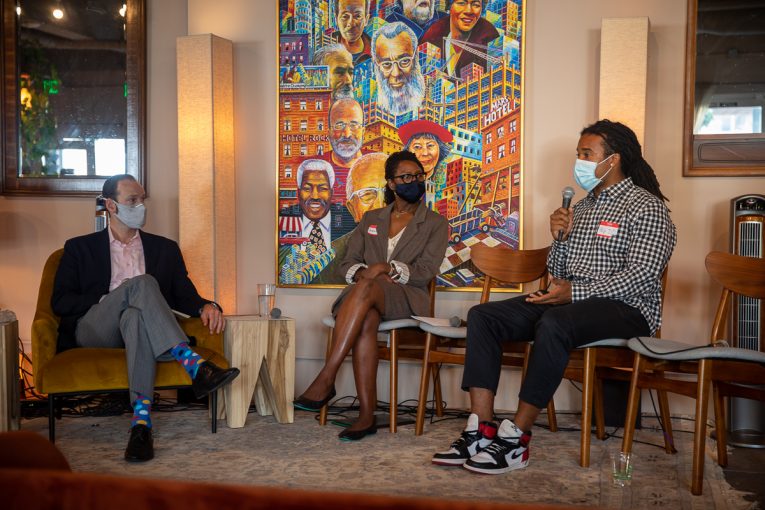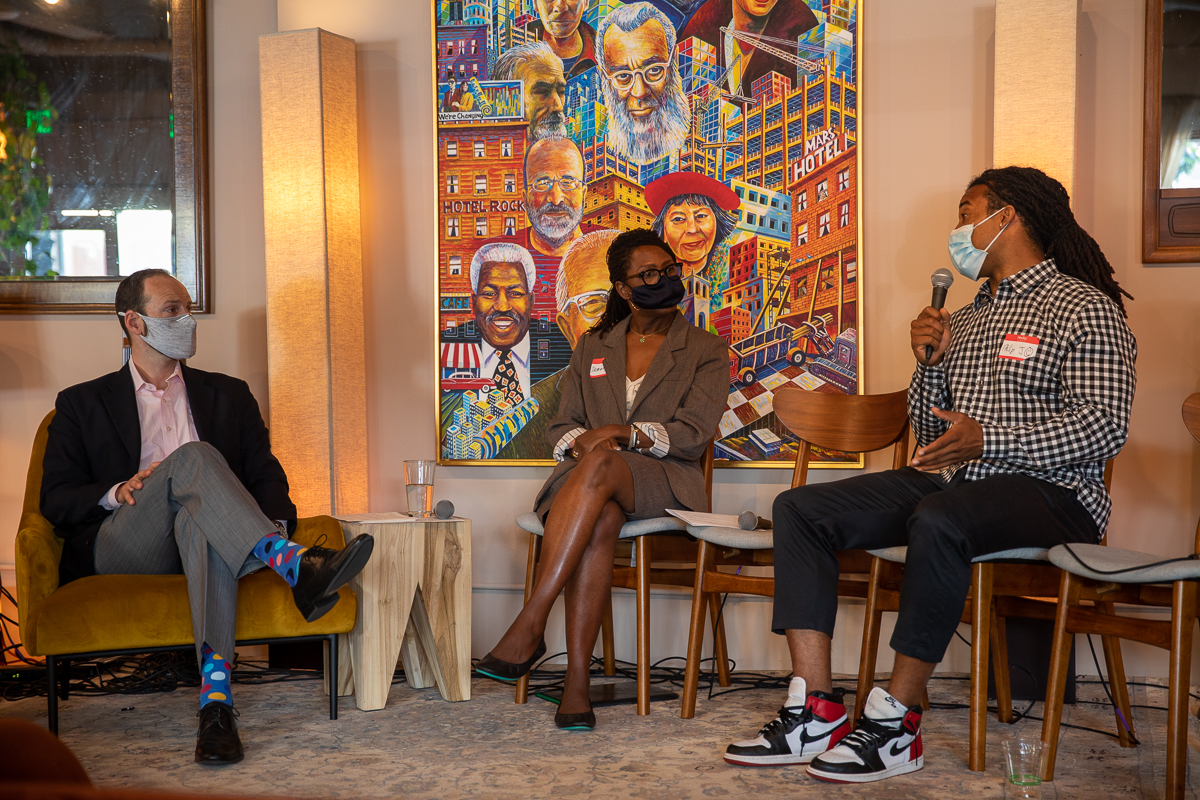

By Savannah Dewberry and Joseph Shepard
SAN FRANCISCO, CA – San Francisco District Attorney Chesa Boudin spoke about behavioral health issues Wednesday at a public summit with several community members at Manny’s Restaurant and Bar—it was also live streamed on the DA’s Facebook page.
Panelists included four people working in mental health services around the Bay Area that spoke on the myriad of issues that plague people seeking help for behavioral disorders.
Boudin began the discussion by reading an email that he had received from the mother of a mentally ill man who had recently been arrested. In the email, the woman described how her son failed to receive the treatment he needed because he was put in jail rather than a medical center.
Speaking on this account, Boudin said “we all need to be aware of the pain that people are suffering.”
Boudin then addressed the first speaker, Director of Behavioral Health and Reentry Services at Jail Behavioral Health Services Team San Francisco, Tanya Mera, asking her to provide some more information about how common mental illness is in the jail system and how it is treated.

Mera refuted the common perception that the majority of the jailed population suffers from mental health problems. Instead, she stated that, of those coming to jail, “only seven percent are diagnosed with a series of persistent mental illnesses.”
Due to this, Mera claimed that behavioral health issues are not the biggest indicators of whether or not someone will become involved with the criminal justice system. Rather, the biggest predictors are things that are harder to address such as poverty, racism, and poor education systems.
Mera stressed the need to change the laws “that really leave families hopeless, leave treatment providers hopeless, and basically send the message that we’re okay with these folks being in jail and on the street rather than in treatment.”
Phillip Joan, the manager of mentoring and peer support projects at the Department of Health San Francisco, spoke about his own experiences as someone who has struggled with behavioral health issues and the cycle of being in and out of jail.
Joan credited breaking that cycle to the services that he received which met his basic survival needs.

“I want to really be very clear that I wasn’t able to be successful until I wasn’t afraid of losing housing, that I had the resources to address my mental health and my substance use, and I had income that allowed me to live in this world as a contributing member to society in my own life,” said Joan.
The next speaker, executive director at the Mental Health Association of San Francisco Mark Salazar, continued to advocate for support systems for people in the criminal justice system who have struggled with mental illness.
Salazar stated, “Philip for me is a great example of when the system works. When he got out of the justice system he had supports, he had the services he needed, he had the housing.”
Salazar went on to comment on the stigma around mental health services, saying that it is one of the biggest obstacles that prevents people from utilizing the services.

Dr. Marilyn Jones, executive director of Because Black is Still Beautiful, agreed with Salazar, saying that from her perspective it was that same stigma that kept many incarcerated Black women in San Francisco from asking for help.
Dr. Jones criticized San Francisco officials for not responding adequately during previous drug epidemics that mainly affected Black people, referencing her own previous struggles with crack and the stronghold the drug had on the city.
“If you want to come with a restorative justice approach, I believe the system has some amends to make before you go on to an entirely new epidemic,” said Dr. Jones. “You did not respond correctly to the last one. [Addicts] have yet to get an empathetic response.”
Boudin agreed as he rounded out the summit.
“As we think about holistic solutions. It’s not enough to simply focus on one eighth of the time. We need to look at the system that created the inequity,” he said. “We can never forget that history if we’re going to move forward, if we’re going to really progress.”

Do you think possibly one of the problems is having to live so closely confined to, and be in constant contact with so many other people?
Maybe having to deal with sharing walls with other people, and being so crowded amongst other people isn’t the way humans have evolved to exist happily?
I know we are generally social beings, but I think it is also important to have some ‘elbow room’ so to speak. I wonder do crazy people go to San Francisco or does San Francisco make people crazy?